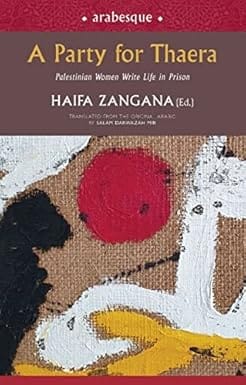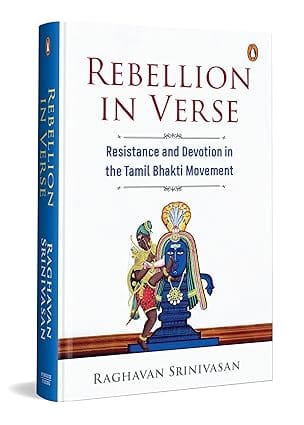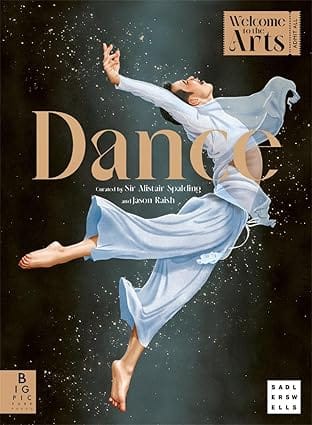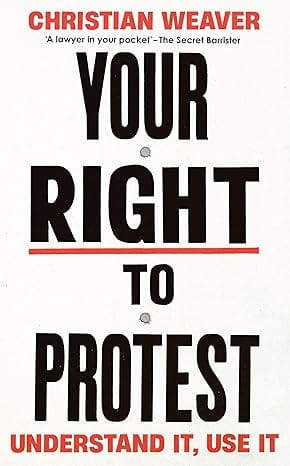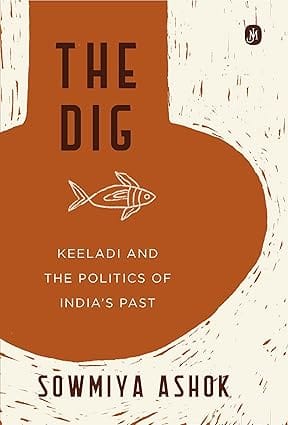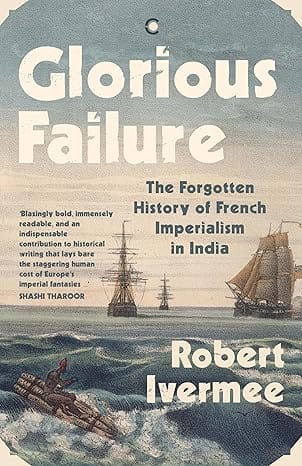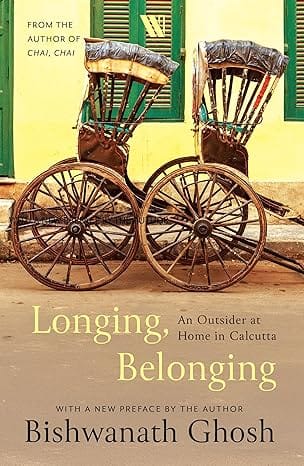- Non-ficton
- Non-ficton
- Contemporary Fiction
- Contemporary Fiction
- Children
- Children
- Comics & Graphic Novels
- Comics & Graphic Novels
- Non-Fiction
- Non-Fiction
- Fiction
- Fiction
A Party for Thaera: Palestinian Women Write Life in Prison is a powerful anthology that brings together the voices of Palestinian women who have experienced imprisonment under Israeli occupation. Compiled and edited by various contributors, this book offers readers an intimate, deeply emotional, and often harrowing insight into the lives of Palestinian women behind bars. Through a collection of personal writings, including essays, poems, and letters, the women who contributed to the book share their stories of resistance, survival, and solidarity.
The title of the book refers to Thaera, a Palestinian woman and symbol of the resilience and courage of imprisoned Palestinian women. Thaera was a political activist who was arrested for her involvement in the Palestinian struggle for freedom and independence. Through her name, the book highlights the broader experiences of Palestinian women, who have often been excluded from the mainstream narrative of resistance. These women, whether fighters, mothers, daughters, or students, are not only politically engaged but also navigate the challenges of their roles within Palestinian society while enduring the harshness of military detention.
The anthology’s contributions span a variety of experiences and perspectives, illustrating the emotional and psychological toll of living in a context where human rights are violated daily. The writings depict the systematic nature of Israeli incarceration policies, which include arbitrary arrests, torture, long periods of detention without trial, and poor conditions in Israeli prisons. These stories convey the deep sense of injustice felt by Palestinian women and the shared understanding of the profound trauma that incarceration brings. Yet, they also illustrate the powerful resilience of these women, who find ways to resist, maintain their dignity, and support one another in the face of adversity.
The book is more than a mere catalog of suffering. It offers a window into the lives of women who, despite the oppressive and dehumanizing conditions in prison, continue to fight not just for their personal freedom but also for the broader cause of Palestinian liberation. These writings reveal the strength and agency of Palestinian women, who challenge gender norms and traditional roles by participating in the resistance movement. They navigate the complex intersectionality of their identities: as women, as Palestinians, and as political prisoners. By writing about their lives, they actively resist the silencing and marginalization of their voices.
One of the key themes of A Party for Thaera is the profound sense of sisterhood that develops among Palestinian women in prison. As they face unimaginable hardships, including torture, abuse, and neglect, the women find strength in their relationships with one another. The book reflects the importance of solidarity and collective action, as the women support each other emotionally, spiritually, and physically. Their writings demonstrate how their political imprisonment has forged deep bonds of camaraderie that transcend their individual experiences and shape their collective struggle.
The anthology also sheds light on the psychological and emotional toll that imprisonment takes on Palestinian women. They write about the isolation they feel, the constant anxiety over the fate of their families, and the difficulty of being separated from their children and loved ones. Yet, amid this suffering, the writers also capture moments of hope, strength, and defiance. They express their love for their homeland and their desire for justice, and they write of their dreams of freedom, peace, and the return of their land. The book's emotional depth allows readers to connect with the human side of the Palestinian struggle, providing a more nuanced and personal understanding of the conflict.
A Party for Thaera also highlights the importance of writing and storytelling in the Palestinian resistance. For many of these women, writing becomes a form of resistance in itself. Through their words, they reclaim their narratives, assert their identities, and challenge the silence imposed by their oppressors. Writing becomes a way for them to document their experiences, preserve their history, and communicate their message to the outside world. Their writing serves as a form of political activism, and the book becomes a testament to their resistance and resilience.
The work also presents a critical examination of the role of women in the Palestinian national movement. While much of the discourse around the Israeli-Palestinian conflict has historically centered on male figures, A Party for Thaera brings attention to the crucial role that Palestinian women have played in both the political and social spheres. By sharing their voices, the book challenges patriarchal norms and emphasizes the importance of including women’s stories in the larger narrative of Palestinian resistance.
In conclusion, A Party for Thaera: Palestinian Women Write Life in Prison is an essential read for anyone interested in understanding the lived experiences of Palestinian women under Israeli occupation. Through personal accounts, the book not only sheds light on the injustices faced by Palestinian political prisoners but also honors the strength, resilience, and determination of women who continue to fight for their freedom and for the freedom of their people. It is a powerful testament to the indomitable spirit of Palestinian women and a reminder of the need for solidarity, resistance, and justice in the face of oppression.
About Author
A Party for Thaera: Palestinian Women Write Life in Prison is a compilation of writings from Palestinian women political prisoners, and its contributors come from a diverse background of experiences within Israeli prisons. While the anthology includes a range of writers, the book itself does not have a single author in the traditional sense. Instead, it is an edited work that brings together these women's voices to share their stories of resistance, survival, and solidarity in prison.
However, the book is edited by Lena M. Shehadeh, a prominent Palestinian scholar, writer, and activist, whose work focuses on gender, human rights, and the Palestinian struggle. Shehadeh’s expertise in social justice and her deep understanding of the political and historical context of Palestinian women’s oppression give her the unique ability to curate such an important anthology.
Shehadeh’s own academic and literary contributions have centered around the issues of gender equality, liberation movements, and the experiences of marginalized communities. She is known for her advocacy of Palestinian women's rights and for her research on the intersectionality of women’s experiences under occupation. Through her role as an editor, Shehadeh sought to amplify the voices of Palestinian women, ensuring that their perspectives on resistance, resilience, and the everyday struggles of life in prison are heard globally.
In addition to her work on A Party for Thaera, Shehadeh has published a range of essays and articles, focusing on the role of Palestinian women in the resistance movement and the broader socio-political landscape. Through her efforts, Shehadeh has contributed to the broader conversation surrounding women's role in conflict, the power of storytelling, and the significance of women's voices in the ongoing Palestinian struggle for justice and independence.
9789385606380- Home
- Non-Fiction
- A Party for Thaera: Palestinian Women Write Life in Prison
A Party for Thaera: Palestinian Women Write Life in Prison
SIZE GUIDE
- ISBN: 9789385606380
- Author: Haifa Zangana
- Publisher: Women Unlimited
- Pages: 102
- Format: Paperback
Book Description
A Party for Thaera: Palestinian Women Write Life in Prison is a powerful anthology that brings together the voices of Palestinian women who have experienced imprisonment under Israeli occupation. Compiled and edited by various contributors, this book offers readers an intimate, deeply emotional, and often harrowing insight into the lives of Palestinian women behind bars. Through a collection of personal writings, including essays, poems, and letters, the women who contributed to the book share their stories of resistance, survival, and solidarity.
The title of the book refers to Thaera, a Palestinian woman and symbol of the resilience and courage of imprisoned Palestinian women. Thaera was a political activist who was arrested for her involvement in the Palestinian struggle for freedom and independence. Through her name, the book highlights the broader experiences of Palestinian women, who have often been excluded from the mainstream narrative of resistance. These women, whether fighters, mothers, daughters, or students, are not only politically engaged but also navigate the challenges of their roles within Palestinian society while enduring the harshness of military detention.
The anthology’s contributions span a variety of experiences and perspectives, illustrating the emotional and psychological toll of living in a context where human rights are violated daily. The writings depict the systematic nature of Israeli incarceration policies, which include arbitrary arrests, torture, long periods of detention without trial, and poor conditions in Israeli prisons. These stories convey the deep sense of injustice felt by Palestinian women and the shared understanding of the profound trauma that incarceration brings. Yet, they also illustrate the powerful resilience of these women, who find ways to resist, maintain their dignity, and support one another in the face of adversity.
The book is more than a mere catalog of suffering. It offers a window into the lives of women who, despite the oppressive and dehumanizing conditions in prison, continue to fight not just for their personal freedom but also for the broader cause of Palestinian liberation. These writings reveal the strength and agency of Palestinian women, who challenge gender norms and traditional roles by participating in the resistance movement. They navigate the complex intersectionality of their identities: as women, as Palestinians, and as political prisoners. By writing about their lives, they actively resist the silencing and marginalization of their voices.
One of the key themes of A Party for Thaera is the profound sense of sisterhood that develops among Palestinian women in prison. As they face unimaginable hardships, including torture, abuse, and neglect, the women find strength in their relationships with one another. The book reflects the importance of solidarity and collective action, as the women support each other emotionally, spiritually, and physically. Their writings demonstrate how their political imprisonment has forged deep bonds of camaraderie that transcend their individual experiences and shape their collective struggle.
The anthology also sheds light on the psychological and emotional toll that imprisonment takes on Palestinian women. They write about the isolation they feel, the constant anxiety over the fate of their families, and the difficulty of being separated from their children and loved ones. Yet, amid this suffering, the writers also capture moments of hope, strength, and defiance. They express their love for their homeland and their desire for justice, and they write of their dreams of freedom, peace, and the return of their land. The book's emotional depth allows readers to connect with the human side of the Palestinian struggle, providing a more nuanced and personal understanding of the conflict.
A Party for Thaera also highlights the importance of writing and storytelling in the Palestinian resistance. For many of these women, writing becomes a form of resistance in itself. Through their words, they reclaim their narratives, assert their identities, and challenge the silence imposed by their oppressors. Writing becomes a way for them to document their experiences, preserve their history, and communicate their message to the outside world. Their writing serves as a form of political activism, and the book becomes a testament to their resistance and resilience.
The work also presents a critical examination of the role of women in the Palestinian national movement. While much of the discourse around the Israeli-Palestinian conflict has historically centered on male figures, A Party for Thaera brings attention to the crucial role that Palestinian women have played in both the political and social spheres. By sharing their voices, the book challenges patriarchal norms and emphasizes the importance of including women’s stories in the larger narrative of Palestinian resistance.
In conclusion, A Party for Thaera: Palestinian Women Write Life in Prison is an essential read for anyone interested in understanding the lived experiences of Palestinian women under Israeli occupation. Through personal accounts, the book not only sheds light on the injustices faced by Palestinian political prisoners but also honors the strength, resilience, and determination of women who continue to fight for their freedom and for the freedom of their people. It is a powerful testament to the indomitable spirit of Palestinian women and a reminder of the need for solidarity, resistance, and justice in the face of oppression.
About Author
A Party for Thaera: Palestinian Women Write Life in Prison is a compilation of writings from Palestinian women political prisoners, and its contributors come from a diverse background of experiences within Israeli prisons. While the anthology includes a range of writers, the book itself does not have a single author in the traditional sense. Instead, it is an edited work that brings together these women's voices to share their stories of resistance, survival, and solidarity in prison.
However, the book is edited by Lena M. Shehadeh, a prominent Palestinian scholar, writer, and activist, whose work focuses on gender, human rights, and the Palestinian struggle. Shehadeh’s expertise in social justice and her deep understanding of the political and historical context of Palestinian women’s oppression give her the unique ability to curate such an important anthology.
Shehadeh’s own academic and literary contributions have centered around the issues of gender equality, liberation movements, and the experiences of marginalized communities. She is known for her advocacy of Palestinian women's rights and for her research on the intersectionality of women’s experiences under occupation. Through her role as an editor, Shehadeh sought to amplify the voices of Palestinian women, ensuring that their perspectives on resistance, resilience, and the everyday struggles of life in prison are heard globally.
In addition to her work on A Party for Thaera, Shehadeh has published a range of essays and articles, focusing on the role of Palestinian women in the resistance movement and the broader socio-political landscape. Through her efforts, Shehadeh has contributed to the broader conversation surrounding women's role in conflict, the power of storytelling, and the significance of women's voices in the ongoing Palestinian struggle for justice and independence.
User reviews
NEWSLETTER
Subscribe to get Email Updates!
Thanks for subscribing.
Your response has been recorded.

India's Iconic & Independent Book Store offering a vast selection of books across a variety of genres Since 1978.
"We Believe In The Power of Books" Our mission is to make books accessible to everyone, and to cultivate a culture of reading and learning. We strive to provide a wide range of books, from classic literature, sci-fi and fantasy, to graphic novels, biographies and self-help books, so that everyone can find something to read.
Whether you’re looking for your next great read, a gift for someone special, or just browsing, Midland is here to make your book-buying experience easy and enjoyable.
We are shipping pan India and across the world.
For Bulk Order / Corporate Gifting
 +91 9818282497 |
+91 9818282497 |  [email protected]
[email protected]
Click To Know More
QUICK LINKS
ADDRESS
Shop No.20, Aurobindo Palace Market, Near Church, New Delhi

